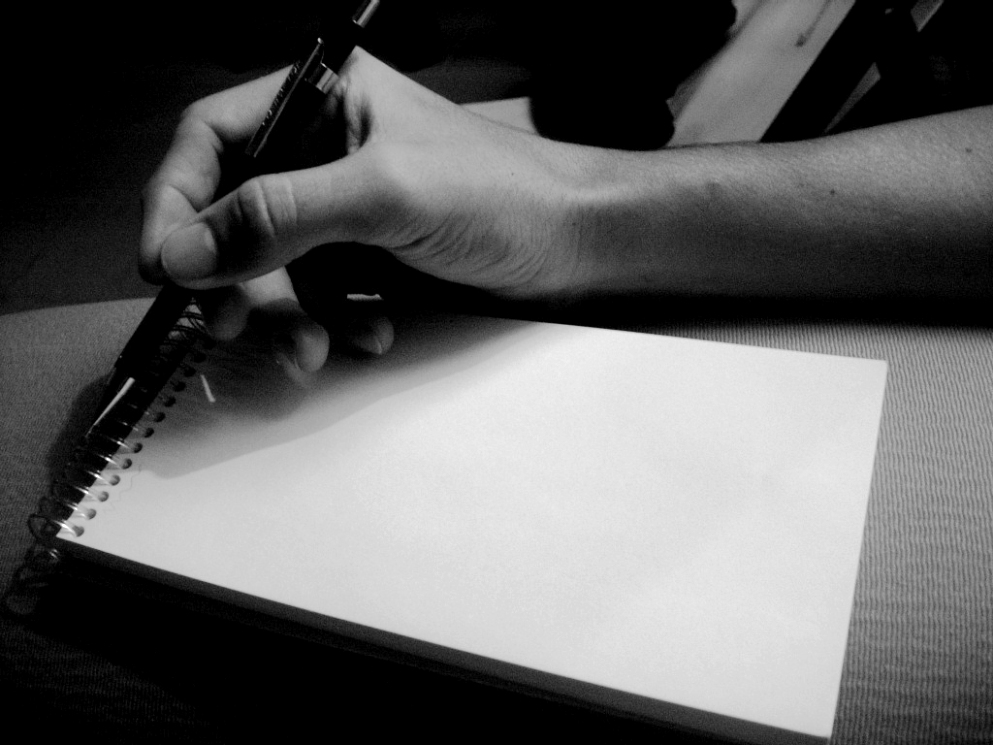
Seven reporters were killed in the line of duty in 2013, the report said, blaming the government's "unwillingness to administer justice".
By comparison, ten journalists were killed in Syria, eight in the Philippines and seven in Somalia.
Placing Pakistan as the 158th country out of 180 on its Press Freedom Index, the report noted: "The government appears powerless in the militant... and the military establishment, which is known as a 'state within a state' among many international observers."
Four of the deaths occurred in Balochistan, which is wracked by violence and insurgency.
Cameraman Imran Shaikh and his colleague Saifur Rehman were among those killed after rushing to cover a bomb which hit the provincial capital of Quetta in January 2013.
Both men died after being hit by a second blast that occurred ten minutes after the first.
Shaikh's widow, Shazia Bano, told AFP the family lived in constant threat, but he continued his work regardless.
"He was not scared and used to say that it is our job and we have to do it... I used to force him to quit his job as journalist but he replied, what I should do if I quit?"
While Shaikh and Rehman were caught up in militant violence, other journalists fall victim to the powerful interests linked to the government or intelligence agencies.
Riaz Baloch, another journalist who published a story about a pro-government figure linked to a car theft operation, told AFP he was kidnapped, tortured, and detained for nearly 60 days.
"They took me to mountains... where I was subjected to severe torture and I was asked ... why I published the news."
The constitution theoretically protects freedom of speech, and the media is seen as having taken great strides in recent years.
But certain subjects, particularly criticism concerning the all-powerful army and spy agencies, remain taboo.
Last year Pakistan was placed 159 out of 179 countries in the index, with nine journalists killed.
COMMENTS (14)
Comments are moderated and generally will be posted if they are on-topic and not abusive.
For more information, please see our Comments FAQ

1732569774-0/Baymax-(2)1732569774-0-165x106.webp)















i am being ashamed of some of the comments here. my fellow countrymen plz try to open your eyes and look around. not every journalist appears on tv and have the power to overthrow govts. on the whole we are all vulnerable, dont have any compensation and insurance and often threatened by almost every powerfull lobby/sector. yes no profession is perfect but most of the journos arent corrupt. the most dis heartening thing is lack of realization from our countrymen and their lack of education. sometimes even educated ones talk rubbish about media and journalism. so plz dont think about us like this.
Is it worst then Somalia and Sudan, It's just negative reporting we all know in a war ravaged country it is not easy to do any work then why only bring one work and section of the society.
That's shameful but we are forgetting a fact. A Journalists works for their country but Pakistani journalists work for their own interest, for political parties, same for tv channels. There are only few good journalists like Talat Hussain in Pakistan, rest of them are corrupted badly. They join journalism for business and power.
Pakistan among most dangerous countries for journalists: Report Journalists in Pakistan are not only the journalists. They are 'mini Politicians” or “someone’s” tools.
pakistan too dangerous for its own citizen...where torture is common to get desired confessional statement and killing of innocent people by men in uniform in karachi
After Bradley Manning, Assange, Greenwald, Snowden, GCHQ's actions at the Guardian, the questioning of Alan Rusbridger at the parliamentary hearing, and so on and so forth, you'd imagine people would shut up for a little while about press freedoms in the third world.
The things journalists get away with in Pakistan would probably not be tolerated anywhere else in the world!
Pakistani journalists constantly patting themselves on the back and telling everyone how hard they have it....
Nothing new, it is dangerous for the last many years.
Journalism is an occupation,with risks not only to one's life,but defamation suits also. I have had this experience. As a business journalist,covering the diamond industry, I wrote a report,accusing one diamond firm based abroad,for practising racial discrimination against exporters of diamonds from India,when the dues to exporters remained unpaid. The firm in question sent me a telex (there was no internet in the early 1990s),demanding a written apology in my newspaper (a business daily from a very reputed group of newspapers). I refused,and sent back a telex asking replies to 100 questions,my apology will be published provided my questions were answered. I was new to the profession. The same firm was written against in the US media. I was threatened with $10 million suit in the US (nearly Rs.20 crores). The firm in question never got back to me. I had the support of the industry,and my paper.
Journalists job in Pakistan is off course a tough job, but not in Pakistan only it is, in all over the world Journalists are victim of criminals, politicians, strong lobbies and of terrorists, although it is a dangerous job in Pakistan but also in Pakistan Journalism is one of the most growing sector.
other than journalists? its safe?
Perhaps most dangerous country on this planet for any living creature ...
For a controversy riddled occupation, keeping in mind the current situation of the country, i would say that is too insignificant a number to be worth being in any satistical report. By comparison i would say the space should have been given to the students dying because of violence directed towards them. I would dare to proclaim that is the most dangerous profession to be in in this country. And maybe in the world too.
"Pakistan remains one of the most dangerous countries in the world for journalists" Pakistan also remains most dangerous country for its own civilians and even policemen. In a country where dozens of young disappear and then found in large shallow graves a few journalists mean nothing. The more probing the journalist is the closer he/she would be to sudden death.